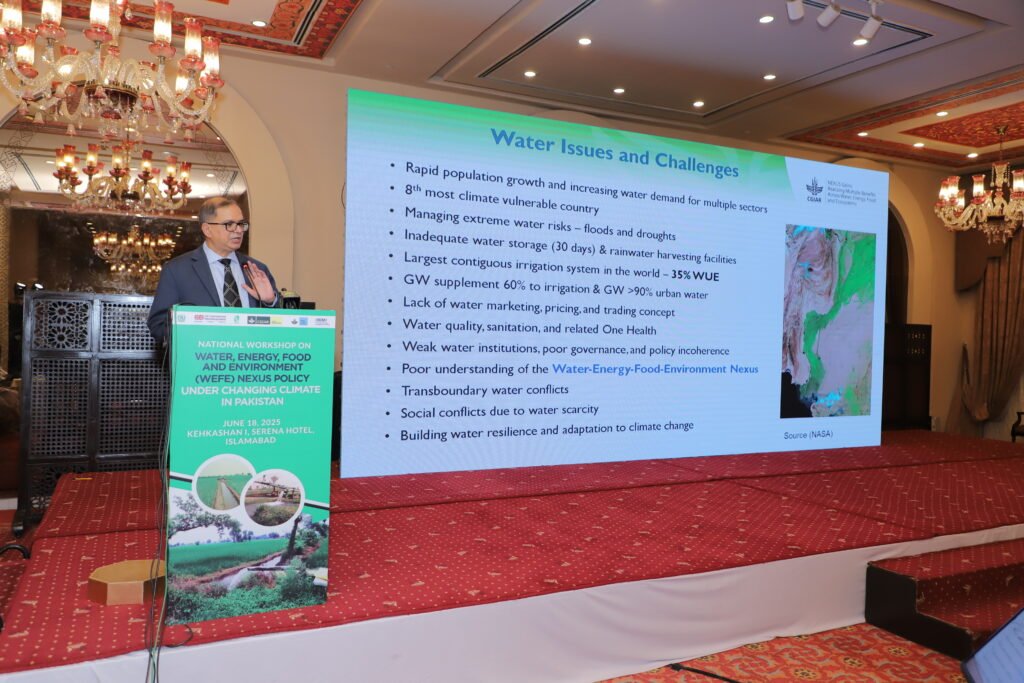ISLAMABAD – Three new digital platforms have been launched to help Pakistan better manage its water, food, and energy resources, especially as the country faces serious climate challenges.
The tools called the Water Productivity Atlas, the Water Body Inventory of Pakistan, and the Hydro, economic Model for the Indus Basin, were introduced by the International Water Management Institute (IWMI) at a national workshop in Islamabad on Tuesday.
State Minister for Climate Change, Dr Shezra Mansab Ali Khan Kharal, praised the launch, saying these platforms would help the government plan more effectively by using real data. She said they would also make decision-making more open and help balance the needs of different sectors.
The workshop focused on the “Water, Energy, Food, and Environment (WEFE) Nexus” and how Pakistan can use this approach to deal with the risks of climate change. The event was supported by the UK’s Foreign, Commonwealth & Development Office (FCDO) and organised by IWMI and CGIAR, a global research group.
Federal and provincial officials, engineers, researchers, and members of civil society took part in the event.
Federal Secretary for Water Resources Syed Ali Murtaza said water issues between Pakistan and India have increased the pressure on Pakistan’s water system. He said better planning is needed to use water more efficiently and support farming.
READ MORE: IWMI Pakistan conference focuses on women’s role in water and climate sectors
“These tools will help the government make smart decisions about how to use water. They will also improve farming practices and guide better water distribution,” he said.
Dr Mohsin Hafeez, Director at IWMI, said Pakistan must stop treating water, food, energy, and the environment as separate problems. “These issues are connected. We must deal with them as a system,” he said.
The Senior Climate Lead at the FCDO, Ms. Anna Balance, shared that the UK government is collaborating with Pakistan to create a climate-resilient community. Our flagship program in Pakistan is the Water Resource Accountability in Pakistan (WRAP). It’s essential to develop a coherent approach that integrates water, food, and ecosystems.
We strongly encourage ministries to work together, promote widespread usage, and build capacity, she added.
IWMI Director General Dr Mark Smith said that science, policy, and government agencies need to work together to build climate resilience. “This event is just the beginning,” he said.
Dr Muhammad Ashraf, IWMI’s country head in Pakistan, said the work must continue beyond this one workshop. “The new tools and partnerships must become part of how the government plans and invests,” he said.
The workshop also saw the launch of two new global science programmes by CGIAR: Policy Innovations and Climate Action. These are aimed at helping governments, including Pakistan’s, create stronger policies for climate and agriculture.
Speakers from Punjab, Balochistan, and Khyber Pakhtunkhwa discussed how better data and planning can support local communities. Engineers, officials, and climate experts also shared ideas about how these tools can help Pakistan deal with climate risks in the years ahead.



1 Comment
Pingback: IWMI, govt join hands to develop national water assessment guidelines - Media Bites